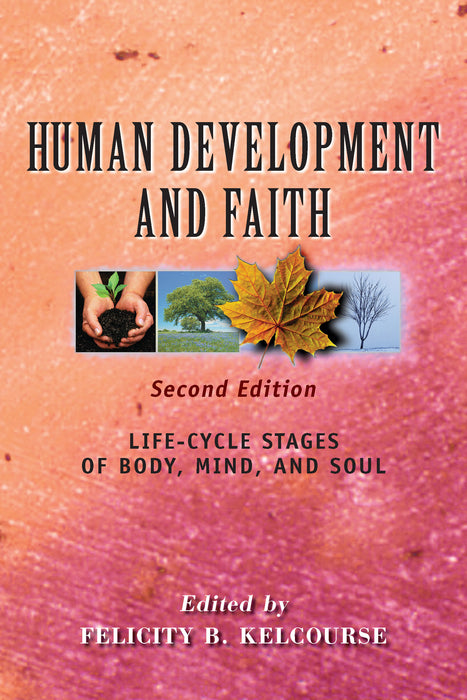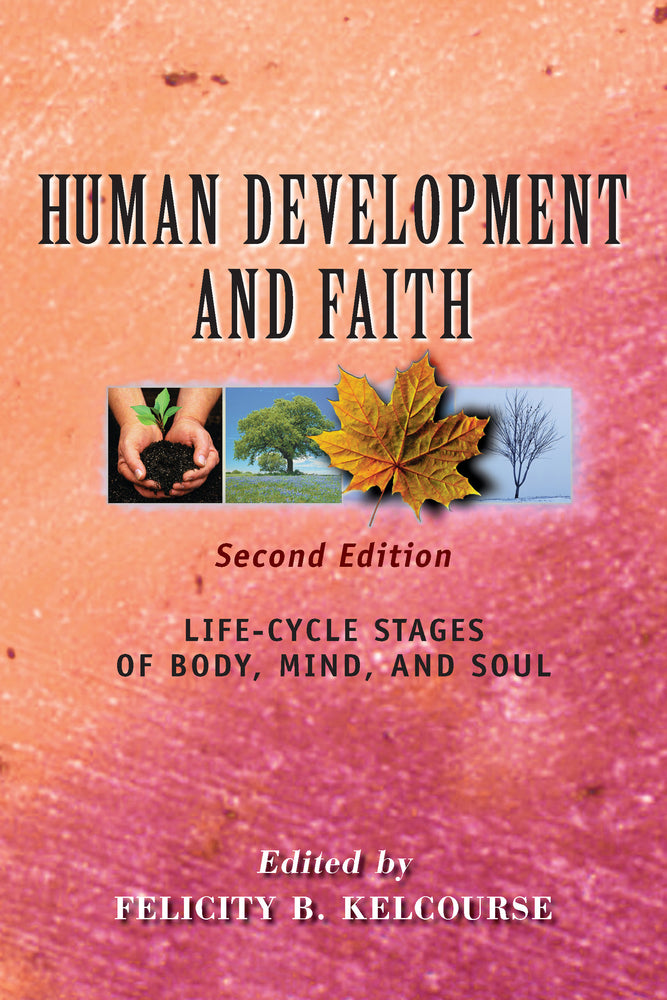Human Development and Faith, second edition: Life-Cycle Stages of Body, Mind, and Soul
edited by Felicity Kelcourse
Human Development and Faith delves into the dynamic interplay between human development and the role of faith in guiding individuals to find meaning and confront life's challenges. It poses two critical questions: What factors support human growth throughout life, and what imbues life with significance as development unfolds? Faith serves as a cornerstone, offering trust and resilience in the face of life's inevitable uncertainties and hardships.
Human development encompasses a wide spectrum of changes, including physical, mental, and interpersonal transitions, along with individual, subjective experiences. The book delves into depth psychologies and cognitive-structural-constructive theories, considering both inner experiences and interpersonal dynamics within the broader context of community, while countering individualistic tendencies.
This journey of human development involves the interplay between nature and nurture, where biology and socialization are interconnected, rather than pitted against each other. Individual development is shaped by the intricate dance between one's biology and environment. The book explores various aspects of human awareness and transformation through concepts like schemas, phases, and stages. Erikson's developmental stages, although subject to critique, provide a cultural lens for understanding human development. Developmental lines such as sexuality continue throughout life, contributing to the continuity of human experience. Early life experiences mold our worldviews, often subconsciously, and addressing early challenges can lead to healing and growth in adulthood.
Human Development and Faith also addresses critiques of developmental theories, including issues of cultural bias, gender bias, and the tendency to pathologize individuals who do not conform to established norms. While it primarily introduces human development from a faith-based perspective, Human Development and Faith acknowledges the limitations of developmental theories and their susceptibility to influence from social power dynamics and discrimination.
The intersection between human development and faith traditions lies in their shared goal of promoting well-being, love, and meaningful lives. Both aim to understand the conditions that foster health, relationships, and love while countering isolation and hatred. The moral structure within faith traditions, exemplified by the Ten Commandments, serves as a safeguard for a meaningful life. These commandments underscore values such as self-acceptance, empathy for others, and gratitude, highlighting the interdependence of these qualities. Human development offers insights into how individual lives are influenced by family and cultural factors, requiring a lifelong endeavor to navigate and gain independence from these influences while still drawing support from them.
Table of Contents
Part One: The Context Of Development
- Theories Of Human Development (Felicity Brock Kelcourse)
- Finding Faith: Life-Cycle Stages in Body, Mind, And Soul (Felicity Brock Kelcourse)
- Human Development in Relational and Cultural Context (Pamela Cooper-White)
- The Family Context of Development: African American Families (Edward Wimberly)
Part Two: Life-Cycle Stages Of Development
- Infancy: Faith Before Language (Denise Senter)
- The Toddler and the Community (Karen-Marie Yust)
- The Oedipal Child and the Family Crucible: A Jungian Account (Terrill Gibson)
- Acculturation and Latency (Vivian Thompson And Jacqueline Braeger)
- Early Adolescence: Venturing Toward a Different World (Ronald Nydam and Arthur David Canales)
- Identity In Middle and Late Adolescence (Alice Graham)
- The Differentiation of Self and Faith in Young Adulthood: Launching, Coupling, and Becoming Parents (Bonnie CushingAnd Monica McGoldrick)
- The Middle Years (Russell Haden Davis)
- Faith And Development in Late Adulthood ( Brynolf Lyon)
- The Wages of Dying: Catastrophe Transformed (Claude Barbre)
The Journal of Pastoral Theology called the first edition of Human Development and Faith "an excellent text for pastoral theology courses, because it fulfills its ambitious goal of bringing a holistic faith perspective to the usual topics of development." This second edition includes a new chapter on infancy, updates reflecting our growing awareness of cultural diversity, and a new preface.


